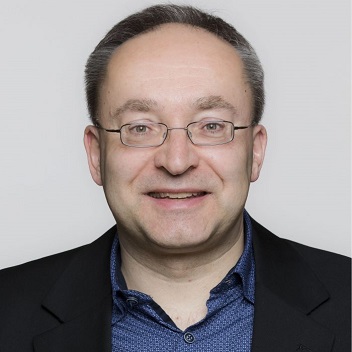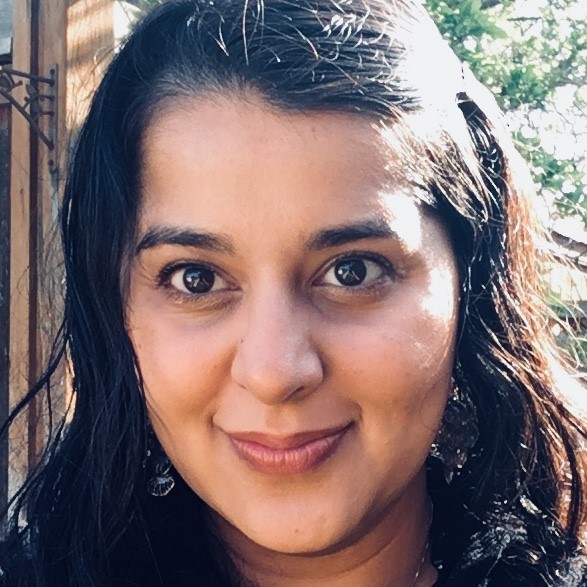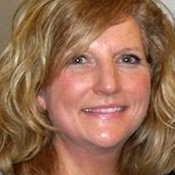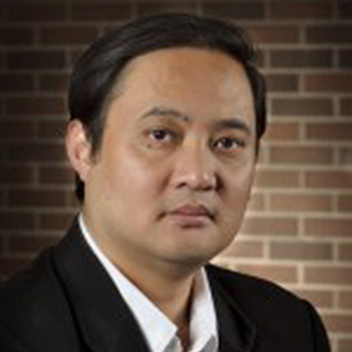
Over the past year, York University’s Provostial Fellows have made steady progress on the University Academic Plan priorities and fulfilling the United Nations Sustainable Development Goals (SDGs).
Here is a look at how the current fellows are helping build a better future and answering the call on our most pressing global issues.
Action on climate change begins at York University
Burkard Eberlein
Professor of Public Policy and Sustainability, Schulich School of Business

Eberlein set out to reduce York’s carbon dioxide emissions. His project, titled “Advancing Carbon Neutrality at York: Reimagining Mobility,” targets emissions from commuting and travel related to studying, research and carrying out other University business activities.
As mobility-related emissions are the single largest contributor to York’s carbon footprint, Eberlein’s focus aligns with other York scholars and the University’s leadership who have identified the need to reduce carbon emissions. The University is committed to achieving carbon neutrality by 2049 and this target can only be achieved by reducing the carbon impact stemming from mobility.
The first phase of this project is now complete, including a scan of actions taken by universities across North America and globally to identify how they reduce carbon emissions and zero in on the best practices that are relevant for York. Nearly 100 leading universities were included in this analysis and criteria for best practices have been developed.
Schulich students have also been engaged on the project and this year the team will be analyzing emerging data from York’s carbon inventory. Firmly based in data, the goal is to match innovative ideas and best practices with York’s emissions profile so that proposals for action target relevant areas and achieve significant impact.
In the project’s next phase, a community-wide survey is expected to roll out to gauge awareness of this issue along with support for initiatives to reduce mobility related emissions at the University. Results are expected to inform recommendations for an emission reducing pilot to test the appetite for behavior and policy change on York’s campuses.
Improving access to clean water
Sapna Sharma
Associate Professor in the Department of Biology, Faculty of Science

Sharma has been working on a University-wide engagement strategy to build partnerships that focus on access to clean water.
She has identified more than 100 faculty whose work touches on equitable access to fresh water. After recruiting three undergraduate students, her team has identified more than 40 relevant student clubs to engage on this important issue. They have also planned a United Nations World Water Day networking event in coordination with the United Nations SDG Student Hub that will take place on March 25 for professionals in the water sciences. Interested students are invited to this event and should register here.
Ultimately, Sharma says the goal is to create a forum of researchers who are engaged in solutions-oriented work on water availability, water quality and accessibility in a time when the global climate change crisis poses significant risks to communities in Canada and globally.
For World Water Day on March 22, the team will also host an interactive knowledge-exchange workshop in partnership with CIFAL York and the Dahdaleh Institute for Global Health Research. If you are interested in attending, register here.
Integrating Sustainable Development Goals in York curriculum
Cheryl van Daalen-Smith
Associate Professor in the School of Nursing, Faculty of Health
Associate Professor in the School of Gender, Sexuality and Women’s Studies and the Childhood and Youth Studies Program, Faculty of Liberal Arts & Professional Studies.

Through a community-development approach, van Daalen-Smith has been looking at ways to foster the infusion of the SDGs into York’s wide array of classrooms.
Nitima Bhatia, a PhD student with expertise on SDGs and curriculum and Will Gage, associate vice-president, teaching and learning, are key collaborators on this work, along with Innovation York’s Knowledge Mobilization Unit, The UNESCO Chair in Reorienting Education towards Sustainability, Sustainability York, York International and CIFAL York.
Working in close collaboration with many existing University partners and stakeholders who are engaged on the SDGs, an “SDGs-in-the-Classroom Community of Practice” has been developed. An SDG Faculty Toolkit is also being developed to support faculty who wish to integrate the SDGs in the curriculum but could use some fresh pedagogical ideas.
The first-ever “SDGs in the Classroom Teach-In” will also take place on May 10 in collaboration with the Teaching Commons. All are invited to join the half-day event featuring interactive discussions, panels, live coaching as well as an exercise that allows participants to enter several faculty-based virtual classrooms to see how different disciplines have infused SDGs in their own curriculum.
The project has also focused on integrating SDGs into proposals for Globally Networked Learning initiatives, where students, faculty and non-academic researchers connect from around the world to work on research projects and knowledge-making activities. York International is a key member of the community of practice along with CIFAL York, the UNESCO Chair in Reorienting Education towards Sustainability and the Teaching Commons among others.
Overall, 50 consultations have taken place with students, faculty, staff and York-based stakeholders on this project. This has revealed a substantive interest in social justice and the global reach of the UN SDGs, particularly when it comes to pedagogical innovations aimed at engaging students to make connections between their area of study and the global goals outlined in the SDGs.
Building global and SDG-informed core competences
Qiang Zha
Associate Professor, Faculty of Education

Zha has been examining more than 12,000 course offerings at York University. By analyzing course descriptions and learning expectations, his work focuses on discerning how students can develop intellectual, intelligent and global core competences as an approach to reinventing liberal arts education.
With a special focus on creating more course resources that build global competence and learning outcomes, Zha has received support from the Mitacs Globalink Research Internship program to examine the conceptualization and development of global competence in higher education.
Drawing on the SDGs, he also plans to develop core competence assessment toolkits, in consultation with York’s Teaching Commons, the UNESCO Chair in Reorienting Educations towards Sustainability, the International Association of Universities and the Chinese University of Hong Kong.
Other efforts underway include a proposal to explore a reinvented model of liberal arts education involving a research network that consists of liberal arts education institutions and leaders from North America, East Asia and Western Europe.
Even more changemakers will be recognized through an upcoming call for applications for the next cohort of Provostial Fellows, which will open later this month. Details on how to apply to the program will be shared with the community in the coming weeks.
